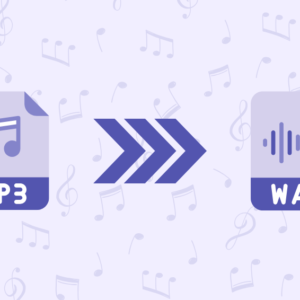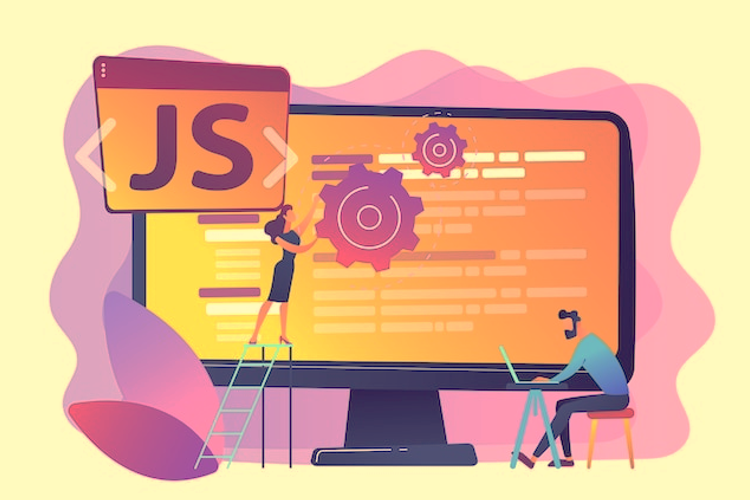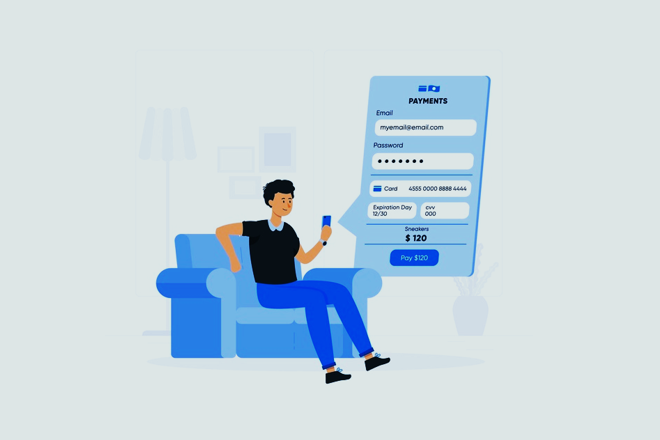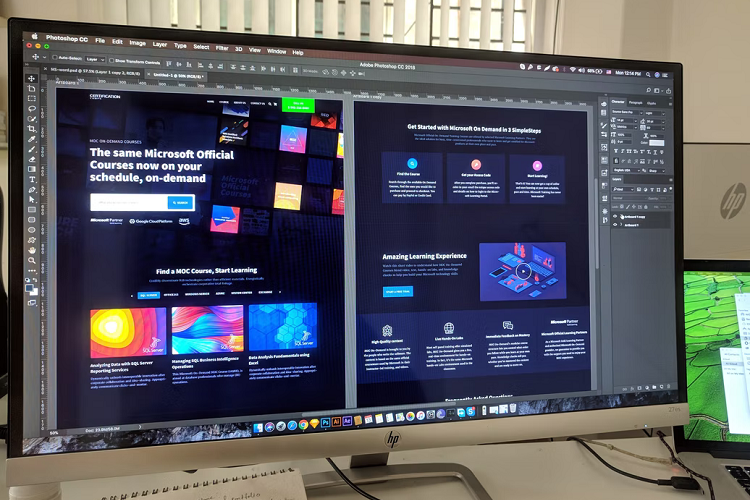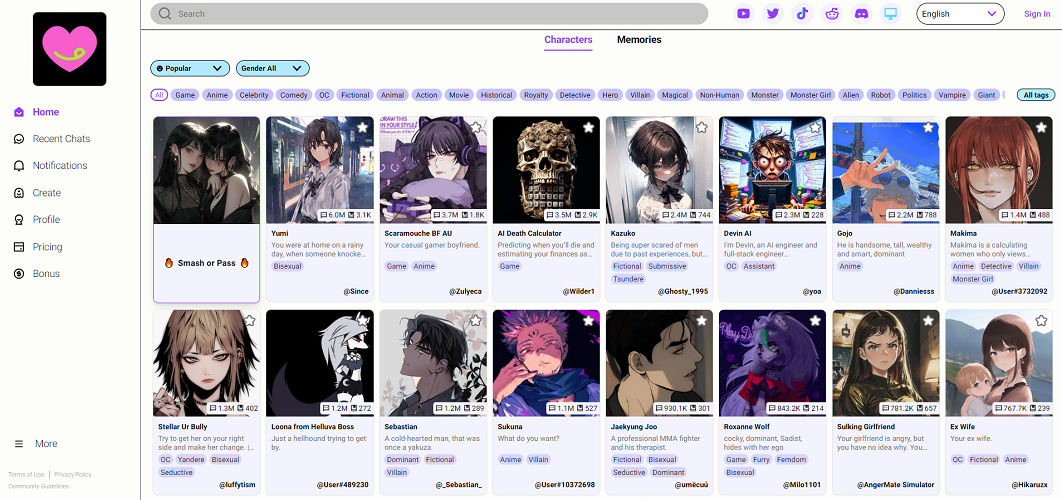In a rapidly evolving digital landscape, the power to create and innovate is no longer confined to the realm of coding experts. No-code app development has emerged as a game-changer, democratizing the app creation process and putting the tools of innovation into the hands of non-technical individuals. Whether you’re a software enthusiast or a business professional looking to bring your app idea to life, the world of no-code offers an exciting avenue to explore.
The Landscape of No-Code Empowerment
Revolutionizing Industries
No-code app development isn’t limited to a single sector; it spans industries with transformative potential. From manufacturing to healthcare, retail to education, no-code platforms empower individuals to design and develop applications that cater to specific industry needs.
In the manufacturing sector, no-code apps are redefining processes. They enable real-time monitoring of production lines, predictive maintenance, and inventory optimization. These apps empower factory managers to make data-driven decisions, reducing downtime and enhancing overall efficiency. For example, a no-code app can gather data from IoT sensors, analyze it, and provide insights that guide production strategies.
Healthcare experiences a paradigm shift as no-code platforms facilitate the creation of patient-centric apps. Non-technical healthcare professionals can develop apps that offer appointment scheduling, medication reminders, and even telemedicine consultations. These apps streamline patient-doctor communication, reduce administrative burdens, and enhance overall healthcare delivery.
In the education sector, no-code apps empower educators to tailor learning experiences. From interactive quizzes to virtual classrooms, educators can create apps that engage students and foster meaningful learning interactions. This revolutionizes traditional teaching methods and allows for personalized education experiences that cater to diverse learning styles.
Retail embraces no-code solutions to enhance customer engagement. Non-technical marketers can develop apps that offer personalized recommendations based on customer preferences, track loyalty points, and even facilitate virtual try-ons. This not only boosts customer satisfaction but also drives sales by creating immersive shopping experiences.
Financial institutions leverage no-code platforms to create apps that empower individuals to manage their finances effectively. Budgeting apps help users track expenses, set financial goals, and make informed decisions. Investment management apps provide insights into market trends, helping users optimize their portfolios. These user-friendly apps put financial control in the hands of individuals, regardless of their technical background.
Agility in Development
No-code platforms empower businesses to adapt and respond swiftly to changing market demands. With the ability to quickly prototype and iterate, non-technical users can bring innovative ideas to life in a fraction of the time it would take with traditional coding methods.
Take, for example, a startup aiming to launch a new service. Using a no-code platform, the team can rapidly prototype the app’s user interface, test various features, and gather feedback from potential users. This iterative process allows them to refine the app’s functionality and design before investing substantial resources in development.
Moreover, established businesses can use no-code platforms to create internal tools that improve operational efficiency. A retail chain, for instance, could develop a no-code app to streamline inventory management across multiple locations. Employees could use the app to track stock levels, place orders, and receive real-time updates, reducing manual errors and optimizing inventory turnover.
Collaborative Creation
No-code development fosters collaboration between technical and non-technical teams. This synergy results in more holistic and innovative solutions, as diverse perspectives come together to shape the app’s functionality and user experience.
Consider a scenario in which a marketing team collaborates with developers to create a customer feedback app. The marketing team, with no coding experience, can use the no-code platform to design the app’s user interface and specify the features they envision. Developers then step in to integrate backend functionality, ensuring data is collected and analyzed effectively. This collaboration capitalizes on each team’s strengths, resulting in an app that meets both user experience and technical requirements.
Enhanced Problem Solving
No-code platforms encourage users to think critically and creatively. As individuals explore the platform’s features and tools, they uncover unique ways to address challenges and devise effective solutions.
For instance, a non-profit organization focused on environmental conservation can develop a no-code app to track and monitor wildlife populations. The app could allow users to input data, such as species sightings and habitat conditions, which are then aggregated and analyzed. This data-driven approach helps conservationists make informed decisions about habitat preservation and species protection.
Similarly, a local government agency can leverage a no-code platform to create a citizen engagement app. This app enables residents to report issues like potholes, broken streetlights, or graffiti. The app could include features such as geolocation and photo uploads to provide accurate information. By involving citizens in the problem-solving process, the government agency can respond more efficiently to community needs.
Empowering Industries with No-Code Apps
Healthcare Transformation
No-code apps are driving innovation in healthcare, from patient management solutions to telehealth platforms. Non-technical healthcare professionals can now develop apps that streamline processes, enhance patient care, and improve overall efficiency.
Patient Management Apps: No-code platforms empower medical practitioners to create apps that manage patient appointments, medical histories, and treatment plans. These apps facilitate seamless communication between doctors, nurses, and patients, leading to improved healthcare coordination.
Telehealth Platforms: Telemedicine has gained prominence, especially during the global pandemic. No-code platforms enable healthcare providers to develop telehealth apps that offer virtual consultations, prescription management, and secure patient-doctor communication.
Wellness Tracking Apps: Individuals are increasingly focused on maintaining their health and well-being. No-code apps can track users’ fitness activities, nutrition habits, and sleep patterns, providing personalized insights and recommendations for healthier living.
Education Evolution
Educators can leverage no-code platforms to create interactive learning apps, fostering engaging and personalized learning experiences for students. Whether it’s gamified quizzes or virtual field trips, the possibilities are limitless.
Gamified Learning: No-code apps enable educators to design interactive quizzes and games that make learning enjoyable. Students can test their knowledge while being immersed in a fun and engaging environment.
Virtual Classrooms: In the era of remote and hybrid learning, no-code platforms empower teachers to develop virtual classrooms. These apps facilitate real-time interactions, video lessons, and collaborative assignments, creating a dynamic online learning experience.
Customized Learning Paths: Every student has unique learning preferences. No-code apps allow educators to create personalized learning paths tailored to individual student needs, ensuring a more effective and engaging education.
Retail Reinvention
In the retail sector, no-code apps are revolutionizing customer engagement and loyalty programs. Non-technical marketers can design apps that offer personalized shopping experiences, digital rewards, and seamless e-commerce integration.
Personalized Shopping: Retailers can develop no-code apps that analyze customer preferences and browsing behavior to provide personalized product recommendations. This enhances the shopping experience and increases the likelihood of purchase.
Digital Loyalty Programs: No-code platforms empower businesses to create loyalty apps that replace traditional paper punch cards. Customers can earn digital rewards and discounts, fostering brand loyalty and repeat purchases.
E-commerce Integration: Retailers can extend their physical stores to the digital realm by developing no-code apps that facilitate online shopping. These apps can feature product catalogs, secure payment gateways, and order tracking, offering a comprehensive e-commerce solution.
Financial Flexibility
Financial institutions are utilizing no-code platforms to develop apps that facilitate budgeting, financial tracking, and even investment management. These user-friendly apps empower individuals to take control of their financial well-being.
Budgeting and Expense Tracking: No-code apps enable users to set budgets, track expenses, and categorize spending. Visualizations and reports provide insights into financial habits, helping users make informed decisions.
Investment Management: Individuals interested in investing can use no-code apps to track their investment portfolios, monitor market trends, and receive real-time notifications. These apps provide a user-friendly interface for managing investments without requiring technical expertise.
Financial Education: No-code platforms also support the development of educational apps that teach financial literacy. Users can access resources, tutorials, and interactive tools to enhance their understanding of personal finance.
Social Impact and Non-Profits
No-code apps are making a significant difference in the non-profit sector, enabling organizations to create donation platforms, raise awareness, and streamline their operations to maximize social impact.
Donation and Fundraising Apps: Non-profit organizations can create no-code apps that facilitate online donations, making it easier for supporters to contribute to their causes. These apps can also provide transparency by showcasing how donations are utilized.
Awareness Campaigns: No-code platforms empower non-profits to develop apps that raise awareness about social issues. These apps can feature educational content, share inspiring stories, and encourage users to take action.
Volunteer Coordination: Non-profits can streamline volunteer management by creating no-code apps that match volunteers with opportunities based on their skills and availability. These apps enhance volunteer engagement and support the organization’s mission.
Empowering Individuals: The No-Code Advantage
Accessibility for All
The beauty of no-code lies in its accessibility. Individuals with diverse backgrounds and skill sets can actively participate in the app development process, breaking down barriers to entry and fostering a more inclusive tech landscape.
Inclusive Design: No-code platforms prioritize inclusivity by offering features that cater to individuals with disabilities. Apps can incorporate accessibility features such as screen readers, voice commands, and high-contrast interfaces, ensuring that everyone can interact with technology.
Empowering Underrepresented Groups: No-code app development provides a platform for individuals from underrepresented communities to showcase their creativity and ideas. This empowerment contributes to a more diverse and representative digital ecosystem.
Bridging the Gender Gap: No-code development offers an entry point for individuals, particularly women, to enter the tech industry. By reducing the technical barriers, more women can engage in app creation and contribute their perspectives to technology.
Fostering Creativity
No-code platforms serve as creative canvases, enabling users to turn their imaginative concepts into tangible digital solutions. This process of ideation and implementation fosters a culture of innovation and problem-solving.
Creative Expression: No-code development encourages users to think outside the box and explore unconventional app ideas. From interactive art installations to digital storytelling apps, creativity knows no bounds in the world of no-code.
Rapid Prototyping: Entrepreneurs and innovators can use no-code platforms for rapid prototyping. This allows them to quickly test and validate their ideas, gaining valuable insights before committing to extensive development.
Cross-Disciplinary Collaboration: No-code development invites individuals from various fields to collaborate on app projects. Artists, designers, writers, and business professionals can contribute their expertise, resulting in apps that blend functionality and aesthetics.
Entrepreneurial Empowerment
Aspiring entrepreneurs no longer require extensive coding knowledge to bring their business ideas to fruition. No-code apps empower them to prototype, test, and launch their products with greater speed and agility.
Idea Validation: Entrepreneurs can use no-code platforms to create minimum viable products (MVPs) and gauge market interest before fully investing in development. This iterative approach reduces risks and allows for data-driven decision-making.
Iterative Refinement: The iterative nature of no-code development enables entrepreneurs to gather user feedback and continuously refine their apps. This responsive approach ensures that the final product aligns with user expectations and needs.
Startup Acceleration: No-code platforms accelerate the startup journey by providing entrepreneurs with the tools to build functional apps without the need for extensive technical resources. This efficiency allows startups to focus on growth strategies and market penetration.
A Future Fueled by No-Code Innovation
The journey of no-code app development is just beginning. As technology continues to evolve, no-code platforms will likely become even more robust and feature-rich, further expanding their capabilities and impact across industries.
Imagine a future where medical researchers use no-code platforms to develop apps that facilitate the analysis of complex genetic data. These apps could aid in identifying disease markers, advancing precision medicine, and improving patient outcomes.
Envision a world where educators collaborate on no-code apps that offer immersive virtual reality experiences. Students could explore historical events, traverse distant landscapes, and engage in interactive simulations, enhancing their understanding of various subjects.
Picture a retail landscape where AI-powered no-code apps create hyper-personalized shopping experiences. These apps could analyze user preferences, fashion trends, and social media activity to curate unique product recommendations and enhance brand loyalty.
Conclusion
In conclusion, no-code app development represents a revolutionary shift in the tech landscape, democratizing innovation and opening doors to countless possibilities. From transforming industries to fostering collaboration and individual empowerment, the impact of no-code is profound and far-reaching.
As you embark on your journey into the world of no-code, remember that the only limit is your imagination. With these powerful tools at your disposal, you have the opportunity to bring your creative visions to life, make a meaningful impact, and contribute to a future where innovation knows no boundaries. So, seize the reins of no-code empowerment and embark on a journey of limitless potential. Your app-building odyssey begins now.

